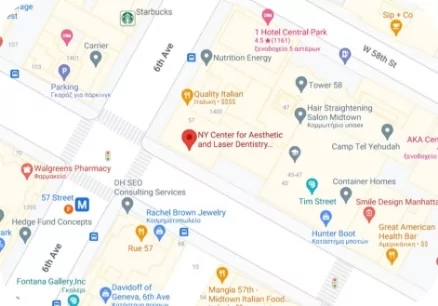Arestin is a topical antibiotic for gum disease that treats the bacteria that cause periodontal disease in the first place. Along with scaling and root planing treatment, Arestin can assist in preventing your periodontal disease from getting worse and allow you to have a healthy mouth for years to come.
Arestin is a powder composed of hundreds of thousands of tiny microspheres that release antibiotics over time. After a deep periodontal cleaning, scaling, and root planing, your periodontist will add Arestin to the pocket between your gum and tooth. Completely painless, the Arestin powder will dissolve on its own but will continue working long after your visit is over.
Call our expert team at 212-371-1414 or contact us online for more information.



